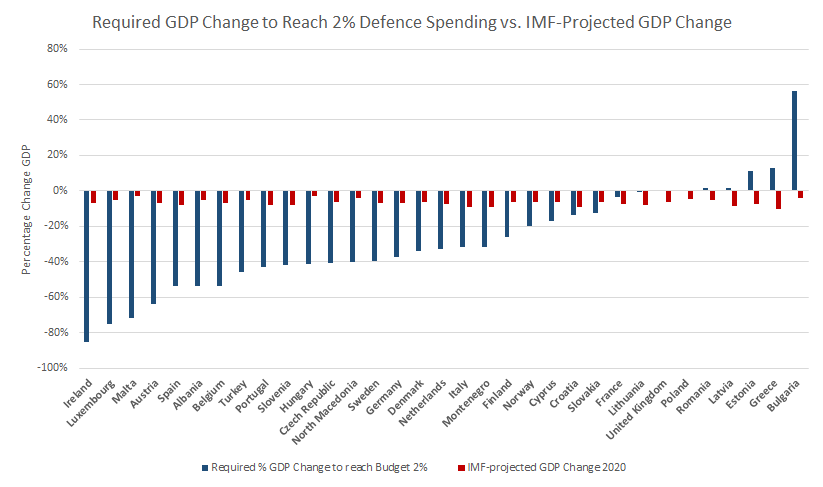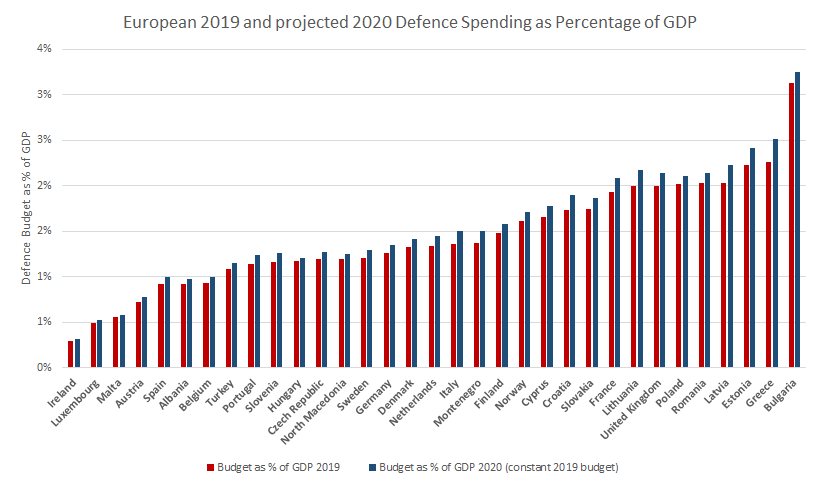Inspired by @DanielFiott& #39;s take on the effects of #COVID19 on defence spending, let& #39;s throw some more data at the problem - a short thread.
Spoiler alert: NATO will (hopefully) have to wait for 2% some more.
For the original take: https://twitter.com/DanielFiott/status/1250127976781488130?s=20">https://twitter.com/DanielFio... (1/6)
Spoiler alert: NATO will (hopefully) have to wait for 2% some more.
For the original take: https://twitter.com/DanielFiott/status/1250127976781488130?s=20">https://twitter.com/DanielFio... (1/6)
Essentially everyone is taking Greece after the last financial crisis as *the* example for a change in defence spending as a percentage of GDP and how a decreasing GDP sends your spending as % soaring.
However, we should keep two factors in mind (NATO Data following) (2/6):
However, we should keep two factors in mind (NATO Data following) (2/6):
1) It& #39;s true that GRE defence spending as % of GDP increased by 0,5% between & #39;07 & & #39;09, but this also has to do with a delayed spending rise(!) between & #39;07 and & #39;08.
2) As @DanielFiott points out, it is more important that spending decreased faster than GDP afterwards. (3/6)
2) As @DanielFiott points out, it is more important that spending decreased faster than GDP afterwards. (3/6)
Now, what about today? Based on GDP and Defence Budget data from @IISS_org MilitaryBalance, double-digit GDP reductions would need to happen for most countries to reach 2% defence spending in 2020 (assuming constant 2019 spending). Red are IMF GDP projections from yesterday (4/6)
So let& #39;s just hope this crisis does not get so bad that we actually see 2% happening to a lot of European states...
If we combine the IMF& #39;s GDP projections and assume constant 2019 defence spending, the changes in defence spending as % of GDP look rather modest (5/6)
If we combine the IMF& #39;s GDP projections and assume constant 2019 defence spending, the changes in defence spending as % of GDP look rather modest (5/6)
Even economically grave decreases in GDP& #39;s have only limited impact on defence spending as a % of GDP. I guess that probably a handful more states will reach 2% in 2020 compared to 2019. The burden-sharing debate will stay with us. The view beyond 2% is more important. (6/6)

 Read on Twitter
Read on Twitter




